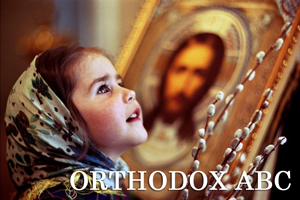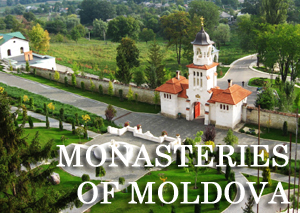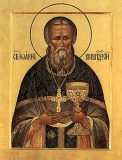
Commemorated on December 20 and June 1
“Saint John of Kronstadt was a married priest, who lived with his wife in virginity. Through his untiring labours in his priestly duties and love for the poor and sinners, he was granted by our Lord great gifts of clairvoyance and miracle-working, to such a degree that in the last years of his life miracles of healings — both of body and of soul — were performed countless times each day through his prayers, often for people who had only written to him asking his help. During his lifetime he was known throughout Russia, as well as in the Western world. He has left us his diary My Life in Christ as a spiritual treasure for Christians of every age; simple in language, it expounds the deepest mysteries of our Faith with that wisdom which is given only to a heart purified by the grace of the Holy Spirit. Foreseeing as a true prophet the Revolution of 1917, he unsparingly rebuked the growing apostasy among the people; he foretold that the very name of Russia would be changed. As the darkness of unbelief grew thicker, he shone forth as a beacon of unquenchable piety, comforting the faithful through the many miracles that he worked and the fatherly love and simplicity with which he received all. Saint John reposed in peace in 1908.” (Great Horologion)
source: http://www.holytrinityorthodox.com/
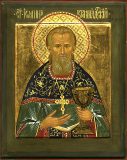 Saint John of Kronstadt was born in the village of Sura in Archangel province on October 19, 1829, and was called John in honor of Saint John of Rila (August 18). His parents were very poor but were very devoted to the Church. Even though he was poor, as a young boy John learned to feel compassion for others in their misfortune. His neighbors frequently asked him to pray for them, as they noticed this special grace-endowed gift in him. When John was ten, his parents were able to raise some money and send him to the local school which was attached to the church. At first, the boy had an extremely difficult time with his studies. He worked for days on end, but still failed to keep up.
Saint John of Kronstadt was born in the village of Sura in Archangel province on October 19, 1829, and was called John in honor of Saint John of Rila (August 18). His parents were very poor but were very devoted to the Church. Even though he was poor, as a young boy John learned to feel compassion for others in their misfortune. His neighbors frequently asked him to pray for them, as they noticed this special grace-endowed gift in him. When John was ten, his parents were able to raise some money and send him to the local school which was attached to the church. At first, the boy had an extremely difficult time with his studies. He worked for days on end, but still failed to keep up.
Writing about his life he once recalled an evening when everyone had already gone to bed. “I could not sleep, and I still failed to understand anything I was taught. I still read poorly and could not remember anything I was told. I became so depressed I fell to my knees and began to pray. I don’t know whether I had spent a long time in that position or not, but suddenly something shook my whole being. It was as if a veil had fallen from my eyes, and my mind had been opened, and I remembered clearly my teacher of that day and his lesson. I also recalled the topic and the examples he had given. I felt so light and joyous inside.” After this experience he did so well he became one of the first in his class to be chosen to go to seminary, and after seminary to the Theological Academy in Saint Petersburg (a great honor at that time).
Throughout his studies, John thought about the importance of forgiveness, meekness, and love, and came to believe that these were the very center and power of Christianity, and that only one path—the path of humble love—leads to God and the triumph of His righteousness. He also thought a great deal about the Savior’s death on the Cross at Golgotha, and pitied those who did not know Jesus Christ. He wished to preach to them about His death and Resurrection. He dreamed about becoming a missionary to distant China, but saw that there was a great deal of work for a genuine pastor of Christ’s flock both in his own city and the surrounding towns.
When John graduated from the Academy he met Elizabeth Nesvitsky who lived in the town of Kronstadt. They dated, he proposed, and they were married. After his studies, John still desired to learn more about his faith and his Church.
It was in this frame of mind that he prepared to be a priest and to enter public ministry. He was ordained a deacon on December 10, 1885, and then priest on December 12. He was assigned to Saint Andrew’s Cathedral in the city of Kronstadt. He said, “I made myself a rule to be as sincere as possible in my work, and of strictly watching myself and my inner life.”
Father John wanted most of all to earn the love of the people in his care, because only a loving attitude could provide the firm support and help he needed as he faced the difficult work of the priesthood. His constant thought was how he would come before the Last Judgment and have to give an account, not only for his own deeds, but also the deeds of his flock, for whose education and salvation he was responsible. To him no one was a stranger; everyone who came to him for help became a friend and relative. He would tell people “The Church is the best heavenly friend of every sincere Christian.” He conducted divine services daily and offered the prayers of the faithful. He called all who rarely receive Holy Communion to prepare themselves and live their lives in a Christian way so that they could receive more often. Listening to Father John, many people changed their lifestyle, repented sincerely, and joyfully received Holy Communion on a regular basis.
At that time the government exiled murderers, thieves and other criminals to Kronstadt. Life was horrible for the exiles. Even children of exiles would become thieves and criminals. He would go to their dugouts, hovels and shacks to visit with them. Not satisfied with staying for five or ten minutes to administer some rite and then leave, Father John believed he was coming to visit a priceless soul, his brothers and sisters. He would stay for hours, talking, encouraging, comforting, crying, and rejoicing together with them.
From the beginning he also concerned himself with the material needs of the poor. He would shop for food, go to the pharmacy for prescriptions, to the doctor for help, many times giving the poor his last few coins. The inhabitants of Kronstadt would see him returning home barefoot and without his cassock. Often parishioners would bring shoes to his wife, saying to her, “Your husband has given away his shoes to someone, and will come home barefoot.” He would also write articles for the newspaper exhorting the people of Kronstadt to “support the poor morally and materially.” These appeals touched the hearts of many and Father John organized many charitable efforts. Realizing that his individual charity was insufficient for aiding the needy, he founded the Orthodox Christian House Parish Trusteeship of Saint Andrew the First-Called. This brotherhood coordinated many charitable efforts throughout the city and helped many needy people.
In 1857, he began teaching in the local city schools. He would tell people, “If children cannot listen to the Gospel, it is only because it is taught like any other subject, with boredom and indifference. Such teaching defeats the purpose of the Gospel. It fails because it forces students only to read words and memorize them instead of making them live in their lives.” To Father John there were no incapable students. He taught in such a way that poor pupils as well as good ones were able to understand. His attention was aimed not so much at forcing students to memorize as to fill their souls with the joy of living according to Christian values, sharing with them the holy thoughts which filled his soul.
When speaking to other priests about their vocation he would say, “You are a representative of the faith of the Church, O priest; you are a representative of Christ the Lord Himself. You should be a model of meekness, purity, courage, perseverance, patience, and lofty spirit. You are doing the work of God and must not let anything discourage you.”
Saint John has performed more miracles than almost any other saint, with the possible exception of Saint Nicholas. Through his prayers he healed the sick, gave hope to the hopeless, and brought sinners to repentance.
Father John labored endlessly in his work for the Lord preaching, teaching, and helping those in need. Having spent his entire life serving God and His people, Father John fell ill and died on December 20, 1908. Almost immediately, people from near and far began to make pilgrimages to the monastery where he was buried. Even today millions of Orthodox Christians in Russia and around the world pray to him to intercede for them as he had always done from his childhood.
Saint John was glorified by the Russian Orthodox Church on June 8, 1990.
source: oca.org
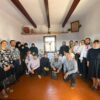 Memorial house of romanian elder Sofian Boghiu Consecrated in his native Village
Memorial house of romanian elder Sofian Boghiu Consecrated in his native Village 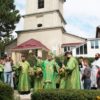 On the 14th Sunday after Pentecost, His Eminence Metropolitan Vladimir celebrated the Divine Liturgy in the St. Nicolas Monastery, Dobrusa village, Soldanesti region
On the 14th Sunday after Pentecost, His Eminence Metropolitan Vladimir celebrated the Divine Liturgy in the St. Nicolas Monastery, Dobrusa village, Soldanesti region 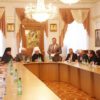 Inauguration of the volume of articles presented at the National Scientific Conference “The Orthodox Church and the State: Faith and Knowledge”
Inauguration of the volume of articles presented at the National Scientific Conference “The Orthodox Church and the State: Faith and Knowledge” 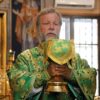 The 12th Sunday after Pentecost – kindness in God changes the world we live in
The 12th Sunday after Pentecost – kindness in God changes the world we live in 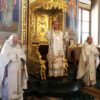 The 11th Sunday after Pentecost – loving our God and our neighbor
The 11th Sunday after Pentecost – loving our God and our neighbor 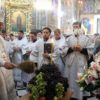 The Transfiguration of the Lord, celebrated in the Nativity of the Lord Cathedral in Chisinau
The Transfiguration of the Lord, celebrated in the Nativity of the Lord Cathedral in Chisinau 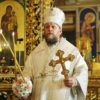 His Eminence Metropolitan Vladimir celebrates 65th anniversary
His Eminence Metropolitan Vladimir celebrates 65th anniversary  Divine Service at the St. Theodore of Tyre Monastery (Ciuflea) in Chisinau, and congratulation of Archimandrite Nicolae (Rosca), the Monastery’s confessor-administrator, on the 50th anniversary.
Divine Service at the St. Theodore of Tyre Monastery (Ciuflea) in Chisinau, and congratulation of Archimandrite Nicolae (Rosca), the Monastery’s confessor-administrator, on the 50th anniversary.  The Tenth Sunday after Pentecost: Divine Liturgy in the Nativity of the Lord Cathedral in Chisinau
The Tenth Sunday after Pentecost: Divine Liturgy in the Nativity of the Lord Cathedral in Chisinau 
